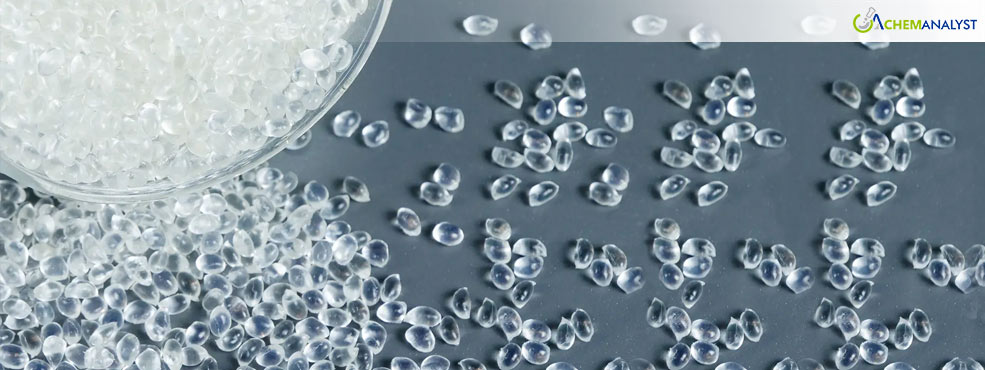Welcome To ChemAnalyst

PBAT (Polybutylene Adipate Terephthalate) prices in Germany experienced a notable rise in early December. Strong demand for sustainable packaging solutions and supply chain issues drove this price trend.
The increase aligns with broader inflationary trends in the economy, as Germany's Consumer Price Index (CPI) showed a 0.7% rise, reflecting growing inflationary pressures. This economic environment has impacted both consumer goods and industrial products, including PBAT. Higher production costs, driven by raw material price fluctuations and rising energy prices, have further fueled the upward trend in PBAT prices.
PBAT, a key bioplastic used in eco-friendly packaging solutions, is gaining popularity due to increased demand for biodegradable products such as shopping bags, food packaging, and agricultural films. As the European Union (EU) pushes for more sustainable packaging solutions through regulatory frameworks like the Packaging and Packaging Waste Regulation (PPWR), PBAT plays a crucial role in meeting the EU’s climate neutrality and circular economy goals. The demand for PBAT is expected to continue rising in the coming months, as companies and consumers increasingly prioritize sustainability.
The PBAT market in Germany faces challenges. Rising costs and supply chain issues are driving up prices. Key raw materials, like 1,4-butanediol (BDO), have fluctuating prices. This raised PBAT production costs. Several companies have boosted production to meet the demand for sustainable, biodegradable packaging. But shortages of key materials are hindering efforts to stabilize supply.
Also, global shipping disruptions before the Chinese New Year have worsened supply chains. High freight rates, delayed vessels, and port congestion have raised prices. This makes PBAT more costly for manufacturers. It also raises concerns about the supply of this essential bioplastic.
The European Bioplastics (EUBP) organization has expressed its support for the recent adoption of the PPWR. It promotes biobased plastics to cut fossil fuel use and packaging's environmental impact.
Hasso von Pogrell, Managing Director of EUBP, says bioplastics like PBAT are vital to the EU's climate goals. They can integrate into recycling streams and support a circular economy. The PPWR aims to harmonize waste management and boost compostable solutions. This will raise demand for PBAT in the coming years.
As the demand for sustainable packaging continues to rise, PBAT prices are expected to remain elevated. The combination of regulatory support, technological advancements, and rising production costs will likely keep prices high, with supply-side constraints—such as raw material shortages and shipping disruptions—continuing to play a significant role in the market dynamics. The increasing push for bioplastics in the EU, combined with higher demand for eco-friendly packaging solutions, is set to ensure that PBAT remains a key player in the future of sustainable packaging, further driving price increases.
We use cookies to deliver the best possible experience on our website. To learn more, visit our Privacy Policy. By continuing to use this site or by closing this box, you consent to our use of cookies. More info.
